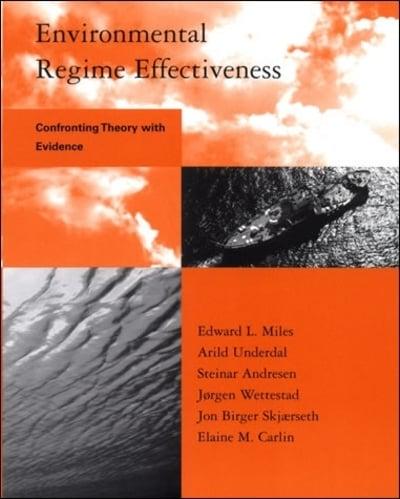Publisher's Synopsis
This book examines why some international environmental regimes succeed while others fail. Confronting theory with evidence, and combining qualitative and quantitative analysis, it compares fourteen case studies of international regimes. It considers what effectiveness in a regime would look like, what factors might contribute to effectiveness, and how to measure the variables. It determines that environmental regimes actually do better than the collective model of the book predicts. The effective regimes examined involve the End of Dumping in the North Sea, Sea Dumping of Low-Level Radioactive Waste, Management of Tuna Fisheries in the Pacific, and the Vienna Convention and Montreal Protocol on Ozone Layer Depletion. Mixed-performance regimes include Land-Based Pollution Control in the North Sea, the Convention on Long-Range Transboundary Air Pollution, Satellite Telecommunication, and Management of High Seas Salmon in the North Pacific. Ineffective regimes are the Mediterranean Action Plan, Oil Pollution from Ships at Sea, International Trade in Endangered Species, the International Whaling Commission, and the Convention for the Conservation of Antarctic Marine Living Resources.












